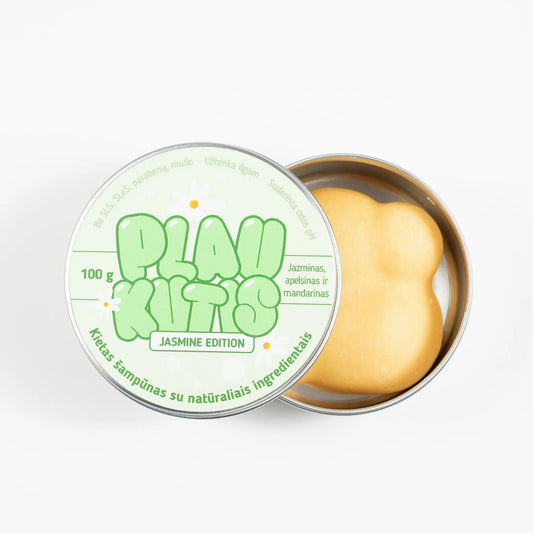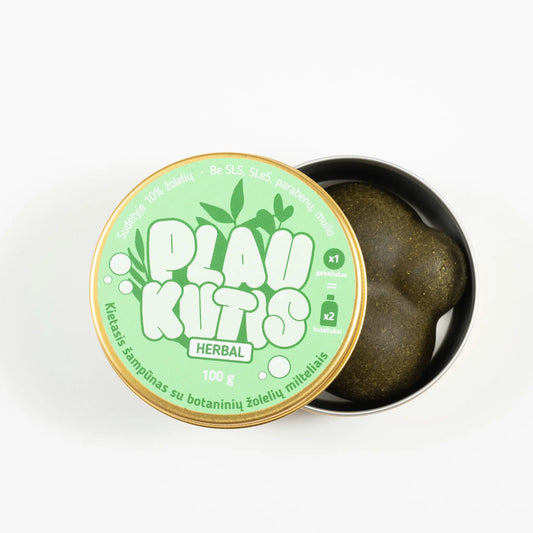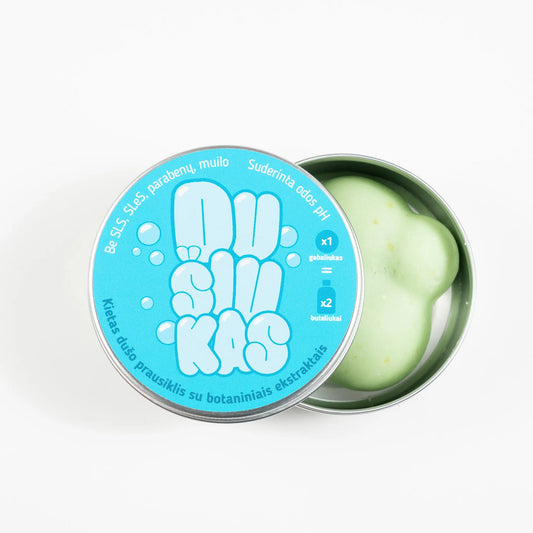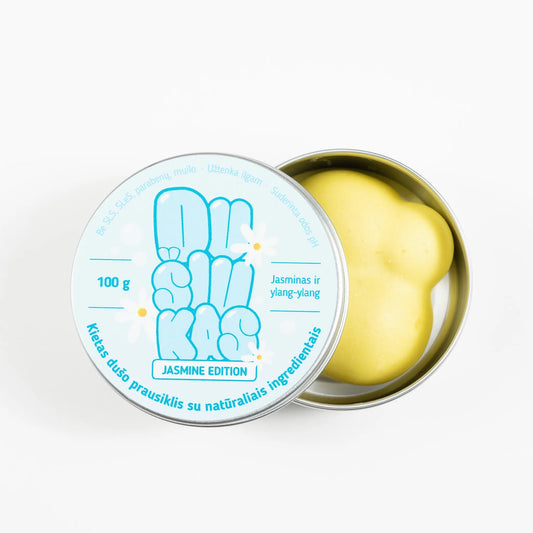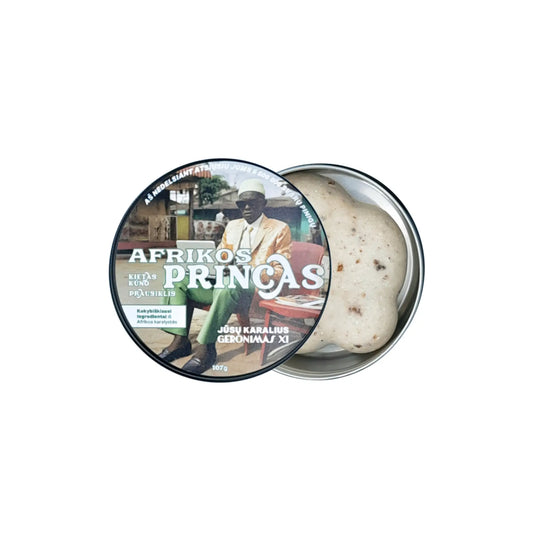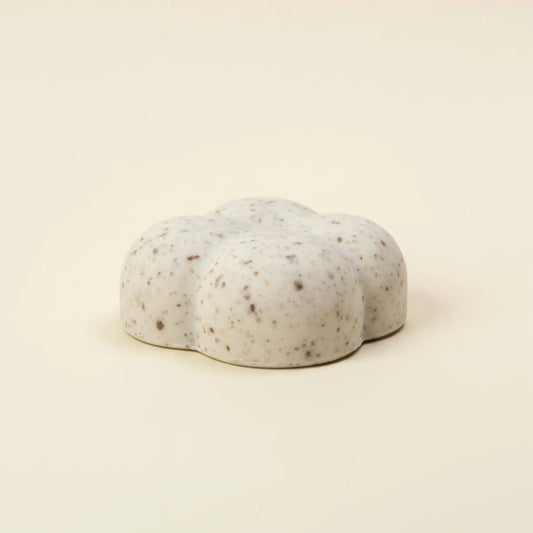Have you ever wondered what to do with those beautiful, but already empty, solid perfume bottles? You're not alone! A recent survey showed that as many as 75% of women keep their empty perfume bottles simply because they're too pretty to throw away.
Around 120 billion cosmetic containers end up in landfills worldwide every year, causing significant damage to our planet. Fortunately, these elegant containers can be put to practical, creative and eco-friendly uses. Let’s take a look at some interesting ideas based on cultural practices, research and expert advice!

Simple ways to clean and disinfect containers
It is essential to thoroughly clean containers before reusing them. Eco-friendly lifestyle expert Anna Williams reveals that as many as 40% of reusable containers fail to function properly due to improper cleaning.
Metal containers:
-
Rinse with warm, soapy water.
-
Disinfect with rubbing alcohol (CDC recommends a 70% solution).
-
Dry thoroughly to prevent rust – almost a third of users forget about this.
Plastic containers:
-
Soak in warm, mildly soapy water.
-
Avoid harsh chemicals - studies show that prolonged contact with chemicals weakens plastic.
-
Let them dry naturally to stay strong and durable.
Glass jars:
-
Dishwasher safe (top rack); glass withstands temperatures up to 55°C without damage.
-
Disinfect effectively with boiling water or alcohol.
-
Dry using a lint-free cloth to avoid streaks.
💡 Did you know? Ancient Romans disinfected perfume bottles with vinegar due to its natural antibacterial properties.
Ideas for non-cosmetic reuse
Think bigger – here are some cultural and practical inspirations:
Jewelry storage:
Perfect for rings, earrings or small necklaces.
In Japan, beautiful tiny jars symbolize care in storing jewelry.
Travel arrangements:
Ideal for storing pills, vitamins or small items.
In France, antique perfume bottles are traditionally transformed into stylish pill boxes.
Decorative jars:
Fill with dried flowers, potpourri, or fragrant herbs.
In the Middle Eastern tradition, such jars are used for spices, providing a fragrant decorative function.
Storing craft supplies:
Organize beads, buttons, sequins or sewing supplies.
89% of Etsy crafters regularly reuse containers to support their creative space.
Home office organization:
Perfect for small items - clips, rubber bands or pins.
Studies show that a tidy workplace increases productivity by up to 15%.
💡 Fun fact: In South Korea, decorated jars with handwritten messages or candies are a popular gift during the holiday season.

The environmental benefits of reuse
-
Each reused container saves enough energy to charge a phone 80 times (Greenpeace).
-
In Sweden, as much as 98% of glass containers are recycled or reused.
-
Every reused container reduces landfill waste and CO₂ emissions.
💡 Insight: Denmark is promoting the reuse of cosmetic packaging in a bid to promote sustainability across the country.
Common mistakes and how to avoid them
🚫 Incomplete cleaning:
Residual odor particles can spoil the new contents.
🚫 Overfilled containers:
Fill to 75% to avoid spillage.
🚫 Unsuitable containers:
Make sure the plastic is suitable for the intended use (especially heat).
💡 Tip: Environmental expert Mike Green recommends clearly labeling each container to avoid mixing up the purposes.

Myth busting and interesting facts
❌ Myth: It is impossible to completely disinfect containers.
✅ Fact: When used properly, rubbing alcohol kills 99.9% of bacteria.
❌ Myth: Plastic melts easily.
✅ Fact: Cosmetic plastic usually withstands temperatures up to 70 °C.
💡 Interesting: Victorian women ingeniously used perfume bottles as inkwells.
❌ Myth: Solid perfume bottles wear out quickly.
✅ Fact: With proper care, they can last indefinitely.
💡 Fact: Glass bottles can theoretically be recycled an infinite number of times without losing quality.
Practical tips for easy reuse
-
Set aside a place in your home to store jars.
-
Label them clearly.
-
Check regularly for damage.
-
Sometimes experiment with new ways of organizing.

FAQ
Is it necessary to clean the jars before use?
Yes – this is essential for safety and durability.
How to remove a strong odor?
Baking soda or vinegar soaks are effective at removing odors.
Are solid perfume bottles suitable for liquids?
It is usually better to use it only for solid or semi-solid products - this will prevent leakage.
Are perfume bottles recyclable?
Glass and metal - usually yes; plastic - depends on the type.
How to prevent metal cans from rusting?
Dry well and store in a dry environment.

Finally
Those charming perfume bottles have great potential beyond cosmetics. By using them wisely, you contribute to environmental protection and enrich your everyday life in a creative way. Do you have your own ideas? Share them below!
